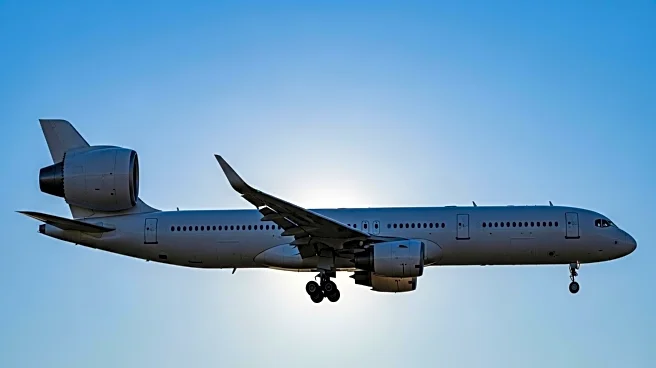What is the story about?
What's Happening?
Spirit Airlines has applied to reject 87 Airbus A320ceo and neo-family aircraft, many of which are powered by Pratt & Whitney geared turbofan (GTF) engines. This move follows a recent agreement with AerCap to reject 27 Neos. The decision is largely driven by ongoing maintenance and inspection issues with the GTF engines, which have caused significant operational disruptions for the airline. As of October, approximately 40 Spirit Neos were reportedly parked, contributing to a 24% reduction in capacity for the quarter ending June 30, 2025. Spirit Airlines has received $72 million in credits from Pratt due to aircraft being grounded, and the removal of GTF engines is expected to continue through at least 2026.
Why It's Important?
The rejection of these aircraft by Spirit Airlines highlights the broader challenges faced by airlines operating GTF-powered aircraft. The maintenance issues have not only affected Spirit's operational capacity but also its financial liquidity, with an estimated impact of $150 million to $195 million. This situation underscores the potential risks for airlines relying on specific engine technologies and the importance of robust maintenance agreements. The decision could influence other airlines facing similar issues and impact the leasing market for these aircraft.
What's Next?
If the court approves Spirit Airlines' application to reject the aircraft, the future of these planes and their engines will be uncertain. Lessors may need to find new operators for the affected aircraft, and the scheduling of engine maintenance and inspections will be a key consideration. The ongoing negotiations and agreements with Pratt & Whitney and its affiliates will play a crucial role in determining the financial and operational strategies for Spirit Airlines moving forward.
Beyond the Headlines
The situation with Spirit Airlines and the GTF engines raises questions about the reliability and long-term viability of certain engine technologies in the aviation industry. It also highlights the importance of strategic planning and risk management for airlines, particularly in terms of fleet composition and maintenance agreements. The broader implications for the aviation industry could include increased scrutiny of engine performance and maintenance practices.















